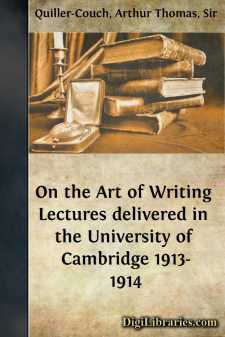Categories
- Antiques & Collectibles 13
- Architecture 36
- Art 48
- Bibles 22
- Biography & Autobiography 813
- Body, Mind & Spirit 142
- Business & Economics 28
- Children's Books 17
- Children's Fiction 14
- Computers 4
- Cooking 94
- Crafts & Hobbies 4
- Drama 346
- Education 46
- Family & Relationships 57
- Fiction 11829
- Games 19
- Gardening 17
- Health & Fitness 34
- History 1377
- House & Home 1
- Humor 147
- Juvenile Fiction 1873
- Juvenile Nonfiction 202
- Language Arts & Disciplines 88
- Law 16
- Literary Collections 686
- Literary Criticism 179
- Mathematics 13
- Medical 41
- Music 40
- Nature 179
- Non-Classifiable 1768
- Performing Arts 7
- Periodicals 1453
- Philosophy 64
- Photography 2
- Poetry 896
- Political Science 203
- Psychology 42
- Reference 154
- Religion 513
- Science 126
- Self-Help 84
- Social Science 81
- Sports & Recreation 34
- Study Aids 3
- Technology & Engineering 59
- Transportation 23
- Travel 463
- True Crime 29
Sort by:
CHAPTER I. HOW THE CHILDREN PLAYED. When news of the War first came to Polpier, Nicholas Nanjivell (commonly known as Nicky-Nan) paid small attention to it, being preoccupied with his own affairs. Indeed, for some days the children knew more about it than he, being tragically concerned in it—poor mites!—though they took it gaily enough. For Polpier lives by the fishery, and of the fishermen a large...
more...
LECTURE I INTRODUCTORY WEDNESDAY, OCTOBER 25, 1916 I In the third book of the "Ethics", and in the second chapter, Aristotle, dealing with certain actions which, though bad in themselves, admit of pity and forgiveness because they were committed involuntarily, through ignorance, instances 'the man who did not know a subject was forbidden, like Aeschylus with the Mysteries,' and...
more...
LECTURE I. INAUGURAL Wednesday, January 29, 1913 In all the long quarrel set between philosophy and poetry I know of nothing finer, as of nothing more pathetically hopeless, than Plato's return upon himself in his last dialogue 'The Laws.' There are who find that dialogue (left unrevised) insufferably dull, as no doubt it is without form and garrulous. But I think they will read it with...
more...
OCEANUS I My Dear Violet,—So you "gather from the tone of two or three recent letters that my spirit is creeping back to light and warmth again"? Well, after a fashion you are right. I shall never laugh again as I used to laugh before Harry's death. The taste has gone out of that carelessness, and I turn even from the remembrance of it. But I can be cheerful, with a cheerfulness which...
more...
CHAPTER I.HOW I FIRST MET WITH CAPTAIN COFFIN.It was in the dusk of a July evening of the year 1813 (July 27, to be precise) that on my way back from the mail-coach office, Falmouth, to Mr. Stimcoe's Academy for the Sons of Gentlemen, No. 7, Delamere Terrace, I first met Captain Coffin as he came, drunk and cursing, up the Market Strand, with a rabble of children at his heels. I have reason to...
more...
POETRY By Arthur Quiller-Couch "Trust in good verses then: They only shall aspire, When pyramids, as men Are lost i'the funeral fire." As the tale is told by Plato, in the tenth book of his Republic, one Er the son of Arminius, a Pamphylian, was slain in battle; and ten days afterwards, when they collected the bodies for burial, his body alone showed no taint of corruption. His relatives,...
more...
PROLOGUE. Beside a winding creek of the Lynher River, and not far from the Cornish borough of Saltash, you may find a roofless building so closely backed with cherry-orchards that the trees seem by their slow pressure to be thrusting the mud-walls down to the river's brink, there to topple and fall into the tide. The old trees, though sheeted with white blossom in the spring, bear little fruit,...
more...
PROLOGUE. Good wine needs no bush; but this story has to begin with an apology. Years ago I promised myself to write a treatise on the lost Mayors of Cornwall—dignitaries whose pleasant fame is now night, recalled only by some neat byword or proverb current in the Delectable (or as a public speaker pronounced it the other day, the Dialectable) Duchy. Thus you may hear of "the Mayor of Falmouth,...
more...
Chapter I. THE BEACH. A coach-and-six, as a rule, may be called an impressive Object.But something depends on where you see it. Viewed from the tall cliffs—along the base of which, on a strip of beach two hundred feet below, it crawled between the American continent and the Atlantic Ocean—Captain Oliver Vyell's coach-and-six resembled nothing so nearly as a black-beetle. For that matter the...
more...
"Q." A year or two ago it was observed that three writers were using the curiously popular signature "Q." This was hardly less confusing than that one writer should use three signatures (Grant Allen, Arbuthnot Wilson, and Anon), but as none of the three was willing to try another letter, they had to leave it to the public (whose decision in such matters is final) to say who is Q to it....
more...











